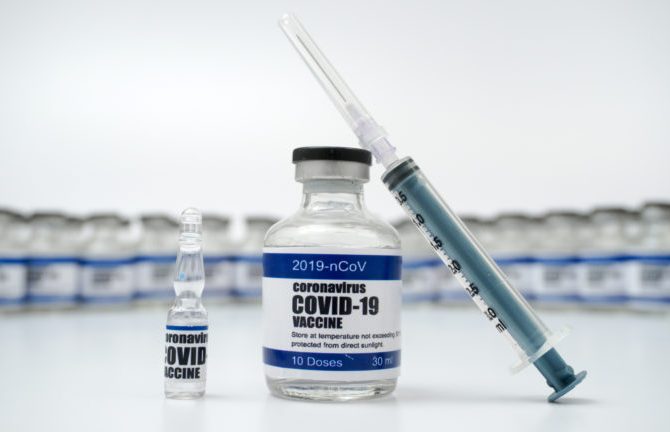Car accidents are an unfortunate and all-too-common reality on our roads, affecting millions of lives each year. These sudden and often traumatic events not only pose immediate risks to life and limb but also leave a lasting imprint on two vital aspects of our existence: our health and our finances. In this post, we will delve into the multifaceted ways in which car accidents can profoundly influence these fundamental aspects of our lives.
Car accidents are indiscriminate; they strike irrespective of age, gender, or socioeconomic status. In a split second, lives can be altered forever. While some accidents result in minor fender benders or close calls with no apparent injuries, others unleash a cascade of consequences that reverberate for years. Understanding the wide-ranging impact of car accidents can help us appreciate the importance of safe driving practices and adequate insurance coverage.

1. Physical Health
Car accidents can have a profound impact on an individual’s physical health. These accidents can result in a wide range of injuries, and the severity can vary significantly. Some of the most common physical injuries include whiplash, broken bones, internal injuries, traumatic brain injuries (TBI), and spinal cord injuries. Whiplash, often caused by the sudden jolting motion of the head and neck during a collision, can lead to neck pain, stiffness, headaches, and in some cases, chronic pain. Broken bones can result from the force of a collision, affecting limbs, ribs, or even the spine. Treating these injuries may require surgeries, the insertion of pins or plates, and extensive rehabilitation.
Internal injuries are another concern following car accidents. Blunt force trauma can cause organ damage, internal bleeding, or pneumothorax (collapsed lung), and these injuries may not always be immediately apparent but can be life-threatening if left untreated. Traumatic brain injuries (TBI) can have a lasting impact on cognitive function and overall brain health. Even a mild concussion can result in cognitive impairments, personality changes, and long-term disability. Spinal cord injuries, depending on their location and severity, can lead to partial or complete paralysis, often necessitating lifelong medical care and adaptive equipment.
Immediate medical attention is crucial for individuals involved in car accidents. Some injuries may not manifest symptoms right away, but a medical evaluation can identify underlying issues and prevent complications. Swift treatment can also expedite the recovery process, especially when it comes to injuries like internal bleeding or traumatic brain injuries. Seeking comprehensive care, including resources like Ortho Bracing for support and rehabilitation, is vital for ensuring a smoother recovery journey.
For individuals with serious injuries, recovery often involves extensive rehabilitation. This may include physical therapy, occupational therapy, and other forms of rehabilitation to regain lost mobility, strength, and function. The duration of rehabilitation can vary widely, ranging from weeks to months or even years.
Chronic pain and disability are common consequences of car accidents. Survivors may experience conditions like chronic back pain, nerve damage, or joint problems, which can significantly impact daily life and overall quality of life. The emotional toll of these physical injuries should not be underestimated. Coping with pain, disability, and the loss of physical abilities can lead to feelings of depression, anxiety, and a sense of loss.
Moreover, the financial strain resulting from the cost of medical treatment and rehabilitation can add to the emotional stress associated with recovery. Even with insurance, co-pays, deductibles, and out-of-pocket expenses can accumulate rapidly.
The impact of car accidents on physical health is complex and wide-ranging. Seeking immediate medical attention, following a comprehensive treatment plan, and having a strong support system are essential for a smoother recovery. It’s also crucial to remember that physical injuries can take a toll on one’s mental well-being, highlighting the importance of holistic care and support for accident survivors.

2. Financial Impact
Medical Expenses
Car accidents often result in substantial medical bills. These bills can include emergency room visits, surgeries, hospital stays, diagnostic tests, prescription medications, and follow-up appointments with various specialists. In severe cases, the costs can escalate significantly, especially if there’s a need for ongoing care or rehabilitation. While insurance may cover a portion of these expenses, co-payments, deductibles, and any out-of-network costs can still impose a significant financial burden on individuals and their families.
Lost Wages
One of the immediate financial consequences of a car accident is the potential loss of income. Injuries sustained in the accident may prevent individuals from working for an extended period or even permanently, resulting in a substantial reduction in their earning capacity. This loss of income can have a cascading effect on an individual’s financial stability, impacting their ability to cover daily expenses, mortgage or rent payments, and other financial obligations.
Vehicle Repair or Replacement
If your vehicle is damaged in an accident, repairing or replacing it can be costly. Even with insurance coverage, there may be deductibles to meet, and insurance settlements may not fully cover the expenses. This means that individuals may need to bear a significant portion of the repair or replacement costs out of their own pockets.
Legal Costs
Car accidents often lead to legal disputes, particularly when it comes to determining fault, negotiating settlements, or pursuing personal injury claims. In such cases, individuals may need to enlist the services of a car accident attorney to represent their interests. Legal fees can vary depending on the complexity of the case, the attorney’s experience, and the specific legal services required.
Hourly Fees vs. Contingency Fees: Attorneys typically charge fees in one of two ways: hourly rates or contingency fees. Hourly rates involve paying the attorney a set amount for each hour of work they dedicate to your case. This can quickly add up, especially in protracted legal proceedings.
On the other hand, contingency fees are a common arrangement in personal injury cases, including car accidents. With this approach, the attorney agrees to represent you without charging upfront fees. Instead, their fee is contingent on the outcome of the case. If they succeed in securing a settlement or winning the case in court, they will collect a percentage of the compensation awarded to you. If they don’t win, you generally won’t owe them any legal fees.
The Advantages of Contingency Fees: Contingency fee arrangements have several advantages for individuals who have been in car accidents. They make legal representation accessible to people who might not have the financial means to pay high hourly fees upfront. It also aligns the attorney’s interests with yours – they are motivated to secure the best possible outcome for your case because their fee is tied to your success.
Percentage of the Award: The specific percentage that attorneys collect in contingency fees can vary, but typically falls within the range of 25% to 40% of the final settlement or court award. This percentage should be discussed and agreed upon before the attorney takes on your case.
Additional Costs: It’s important to note that while contingency fees cover the attorney’s professional fees, other expenses related to the case may still apply. These expenses, often referred to as “out-of-pocket costs,” can include court filing fees, expert witness fees, medical record retrieval costs, and more. In some cases, the attorney may advance these costs on your behalf and deduct them from your settlement or award once the case is resolved.
Fee Agreements: To ensure transparency and protect your interests, attorneys typically provide written fee agreements that outline the terms of the contingency fee arrangement, the percentage they will collect, and any additional expenses you may be responsible for. It’s essential to review and understand this agreement before proceeding with legal representation.
Legal costs in the aftermath of a car accident can be significant, but many attorneys work on a contingency fee basis, which can alleviate the immediate financial burden on accident victims. Contingency fee arrangements provide access to legal representation without upfront costs, making it more accessible for those seeking compensation for their injuries and losses. It’s advisable to consult with an attorney to discuss the specific terms of their fee arrangement and to ensure you understand the potential costs associated with pursuing a legal claim following a car accident.
Increased Insurance Premiums
If you are found at fault for the accident, your insurance premiums are likely to increase significantly. This means that in addition to the immediate costs associated with the accident, you will face higher ongoing expenses for your auto insurance coverage in the months and years following the incident.
Long-Term Financial Consequences
The financial impact of a car accident can extend beyond the immediate aftermath. Some injuries may require ongoing medical care, assistive devices, or modifications to your home or vehicle. These ongoing expenses can accumulate over time, further straining your finances.
Emotional Stress
It’s important to note that the financial impact of a car accident is not limited to tangible costs. The stress and anxiety resulting from mounting medical bills, lost wages, and uncertainty about the future can take a toll on your mental well-being. This emotional burden can affect your ability to make sound financial decisions and exacerbate the overall financial impact of the accident.
The financial consequences of a car accident can be far-reaching and enduring. It’s crucial to have appropriate insurance coverage, seek legal advice when necessary, and explore financial support options if you’re facing significant medical bills and lost income. Additionally, budgeting and financial planning can help individuals navigate the challenges of post-accident financial recovery. Understanding the full scope of the financial impact of a car accident is essential for making informed decisions and taking steps to mitigate its long-term consequences.

3. Long-Term Consequences
The impact of a car accident on your health and finances may extend far beyond the immediate aftermath.
Increased Insurance Premiums: If you are found at fault for the accident, your insurance premiums are likely to increase significantly, costing you more over the years.
Ongoing Medical Costs: Some injuries may require continuous medical care or long-term medications, which can add up over time.
Reduced Quality of Life: Severe injuries can lead to a reduced quality of life, affecting your ability to perform daily activities, enjoy hobbies, or participate in social events.
Car accidents can have a devastating impact on your health and finances. It’s crucial to prioritize safety while driving and follow traffic laws to minimize the risk of accidents. Additionally, having adequate insurance coverage is essential to protect yourself financially in case of an accident. If you are involved in a car accident, seek medical attention immediately and consult with legal and financial professionals to navigate the challenges that may arise. Remember, taking precautions and being prepared can make a significant difference in mitigating the potential consequences of a car accident.












































